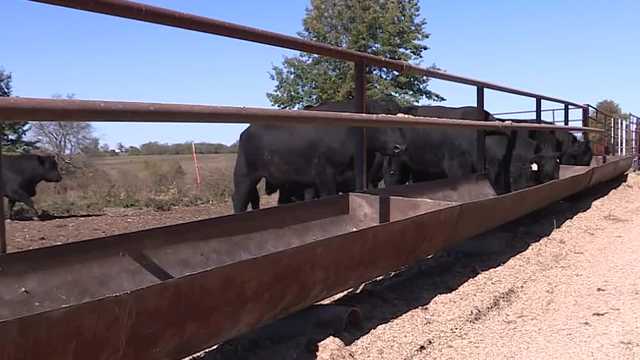Missouri, Kansas ranchers react to President Trump’s potential Argentina beef deal

By Andy Alcock
Click here for updates on this story
KANSAS CITY, Mo. (KMBC) — A pending deal President Trump is negotiating with Argentina to import beef is being met with skepticism from cattle ranchers in both Missouri and Kansas.
The president wants to bring down the price of beef at the grocery store.
Jack Geiger’s family has deep roots in northeast Kansas pre-dating the Civil War — six generations.
A cattle rancher near Robinson, Kansas, in Brown County, Geiger opposes President Trump’s plan to import beef from Argentina.
“It’s market manipulation and it’s ill-informed and it’s short-sighted,” Geiger said.
Chad Weigand is a third-generation cattle farmer in Johnson County, Missouri, in the Warrensburg area.
He supports President Trump but said he’s frustrated by what he said are the president’s inaccurate comments about the cattle industry.
“If you want to invest in America first, you need to first start rebuilding your American rancher to have sustainable beef for America,” Weigand said.
Both Weigand and Geiger said a shortage of American cattle dates back a few years to drought.
But they believe the price of beef is fair given the supply and demand for it.
“It’s finally to a place where the market is providing sustainability and offering maybe a little bit of growth,” Weigand said.
“The U.S. customer is voting with their food dollars, if you will, that, you know, beef is a protein that they want,” Geiger said.
President Trump has yet to say how much beef he wants to import from Argentina.
Argentina’s annual beef exports are about 20,000 tons.
That number is a small fraction of the 12 million tons U.S. cattle ranchers produce each year.
According to the National Beef Wire, Missouri ranks third among U.S. states for the number of beef cows.
Kansas ranks seventh.
Missouri Congressman Mark Alford, a Republican, said, “The solution isn’t foreign beef. It’s rebuilding our herds and supporting our American farmers and ranchers. Our food security is national security.”
Please note: This content carries a strict local market embargo. If you share the same market as the contributor of this article, you may not use it on any platform.